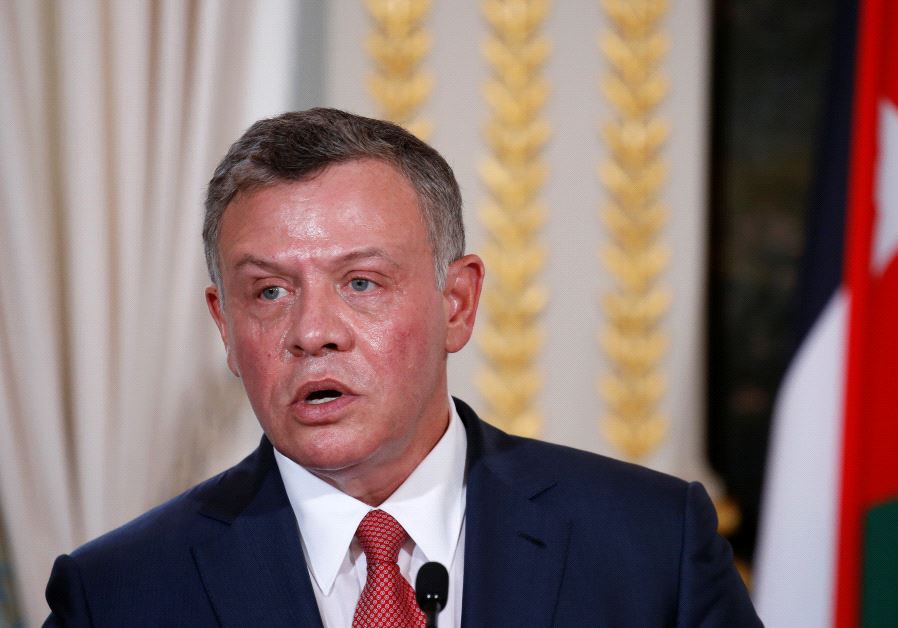Amman- Jordan’s King Abdullah II said he is “deeply concerned” with the situation in southern Syria and that his country’s border with Syria would only reopen “when the right security conditions materialize on the ground.”
The King told the state news agency Petra in an interview that the military campaign against ISIS in Syria “could push it south toward Jordan” and that Jordan’s top priority is to protect its borders.
“There has been substantial progress in the fight against ISIS, which could push it south towards Jordan, and we are fully ready and capable of decisively dealing with them and with any escalation that could threaten us, be it by ISIS, any foreign group fighting in Syria or operations that target civilians near our border and cause new waves of refugees,” King Abdullah was quoted as saying.
“Jordan will continue to play an active role within the global coalition against terrorism,” he said.
He also said that the ceasefire agreement in southwest Syria, secured recently by Jordan, Russia and the United States, achieves common interests.
It can be replicated elsewhere in Syria, thus creating an environment conducive to reaching a political solution to the Syrian crisis through the Geneva process.
“After seven years of destruction, killing, and displacement, it is high time that a political solution accepted by all parties in Syria was reached to end the crisis, guaranteeing the country’s territorial integrity and the safety of its citizens and securing a future of peace and decent living for all Syrians,” the monarch stressed.
“This has been and remains our firm position since the beginning of the crisis. It is possible to pursue the reopening of border crossings when the right developments and security conditions materialize on the ground.”
The King pointed out that the fight against extremism and terrorism is a global, long-term fight, and the recent positive developments in the war on terrorism have been the result of improved multilateral coordination.
He noted that the areas liberated from ISIS in Iraq and Syria are not the endgame, adding that ISIS may resurface “if we do not provide fundamental solutions to the various crises that some Arab countries are currently going through. We must also give hope to the peoples of the region, who have been weighed down by the ongoing cycle of war and violence. It is the time we opened horizons of hope for the present and future generations.”
“We must not let the developments in the Middle East overshadow other forms of killing, violence, and displacement perpetrated against Muslims, such as what is taking place in Myanmar,” noted the King while condemning the crimes and brutal massacres committed against the Rohingya Muslim minority in Myanmar’s Rakhine State, which have killed and displaced tens of thousands of innocent Muslims.
